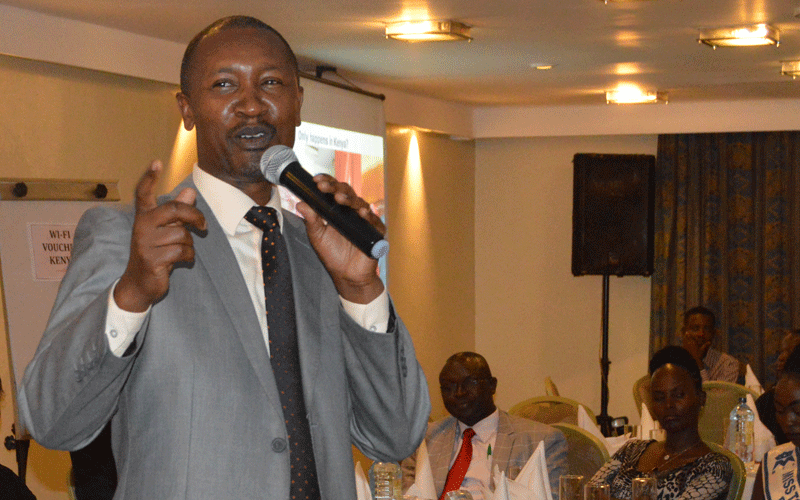Kenya Haemophilia Association a relief to patients with blood conditions
By Milliam Murigi, March 9, 2020
Milliam Murigi @millymur1
Humphrey Haji was only five years old when he experienced his first unusual bout of bleeding.
One day at home he cut himself, but despite his parents trying all the first aid measures, the bleeding could not stop.
It persisted all night long until the following day when it stopped. His parents didn’t know about what could have triggered the excessive bleeding and so they ignored it.
In 2007, Haji experienced his second severe bleeding incident. As he was playing football with his friends he tripped, fell and hurt his knee.
After an X-ray the doctor noticed he had a fractured bone. He started his treatment, but the condition was becoming worse every day due to internal bleeding.
The diagnosis
His condition deteriorated so much that he had to undergo surgery. But after the surgery, the wounds could not stop bleeding.
It is then that the doctors diagnosed him with haemophilia, a genetic disorder that impairs the body’s ability to trigger a blood clot. The process of clotting prevents excessive bleeding.
The condition results in people bleeding long after an injury. It also increases the risk of internal bleeding in the joints or brain.

Haji was discharged from hospital after almost a month, but he has difficulties walking and had to rely on crutches.
The medical bills arising from frequent follow-up hospital visits were becoming unmanageable.
“It is expensive to take care of a haemophiliac because the medication is extremely expensive.
For instance, for an adult, it ranges from Sh300,000 to Sh400,000 monthly per patient. Most households can’t afford this amount of money,” says 20-year-old Haji.
However, Haji and 650 other people who suffer from haemophilia can breathe a sigh of relief.
The Kenya Haemophilia Association (KHA), an organisation in charge of representing the rights of patients living with bleeding disorders in the country, has come to their rescue.
The organisation assists people with the condition access healthcare through securing blood clotting (coagulation) factors. Coagulation factors are proteins in the blood that control bleeding.
“Coagulation factors concentrates are one of the three pillars of successful management of severe and moderate haemophilia.
However, in Kenya we depend on donors for medication with no insurance or government backing, thus making it a burden to reach many people,” said KHA chairman Dr Kibet Shikuku.
Finding cure
The organisation, which operates in partnership with Moi Teaching and Referral Hospital and Academic Model Providing Access to Healthcare (AMPATH), also provides special haemophilia care and education to both haemophiliacs and their care givers so as to improve the quality of life.
“We run our services under the umbrella of AMPATH Haematology Programme and provide clinical care to haemophilia patients of all ages, as well as their care givers.
Our aim is to lead the fight against hereditary bleeding disorders by helping people affected live healthy lives while searching for a cure,” said Shikuku.
According to Shikuku, one in every 10,000 Kenyans has haemophilia, yet only 650 patients have been diagnosed and registered for treatment and care.
This is because the treatment is costly, there is lack of treatment facilities in the country and there is a limited number of specialists.
“We receive factors donations worth Sh650 million annually from World Federation of Haemophilia.
Since we don’t have enough specialists, we are planning to recruit 120 healthcare professionals to train clinical officers across Kenya,” he said.
Apart from offering clinical support and support to the families, the association also lobbies the government, agencies and institutions concerned to provide a conducive environment for the holistic management of the disease and other bleeding disorders in Kenya.
It creates awareness to the general public on the disorder and other bleeding disorders, engage in resource mobilisation activities that will facilitate its activities and trains and builds the capacity of care givers involved in management of haemophilia and other bleeding disorders.
“We have been having fundraisers with an aim of purchasing diagnostics equipment to set up satellite clinics, so as to stop unnecessary loss of lives due to misdiagnosis.
So far, we have put up two more centres where comprehensive haemophilia care is given,” added Shikuku.